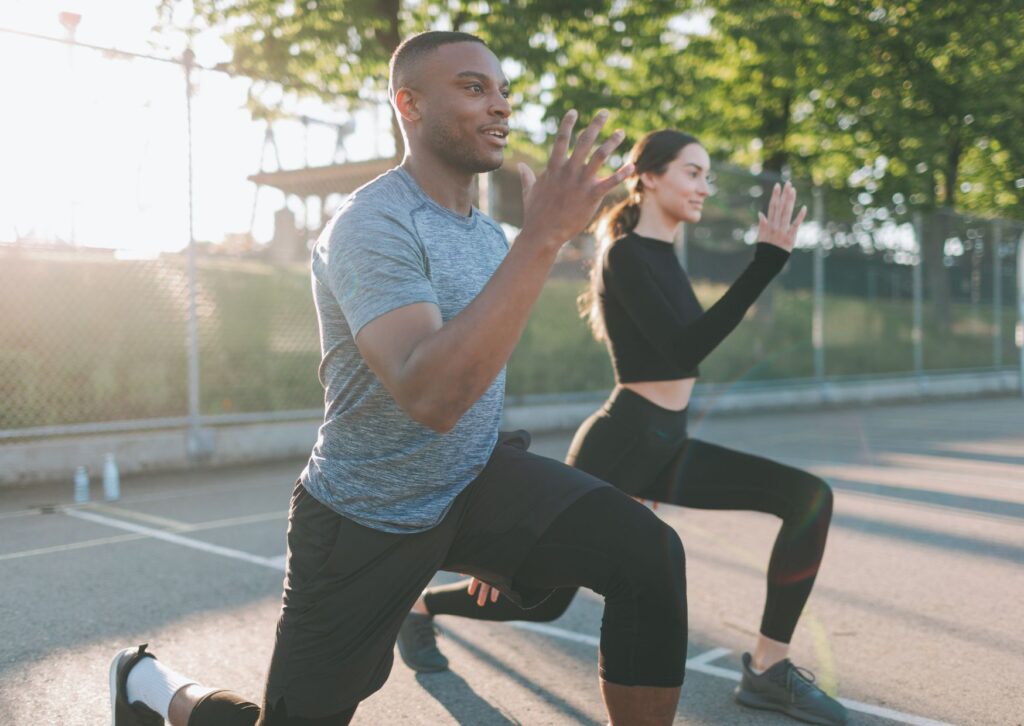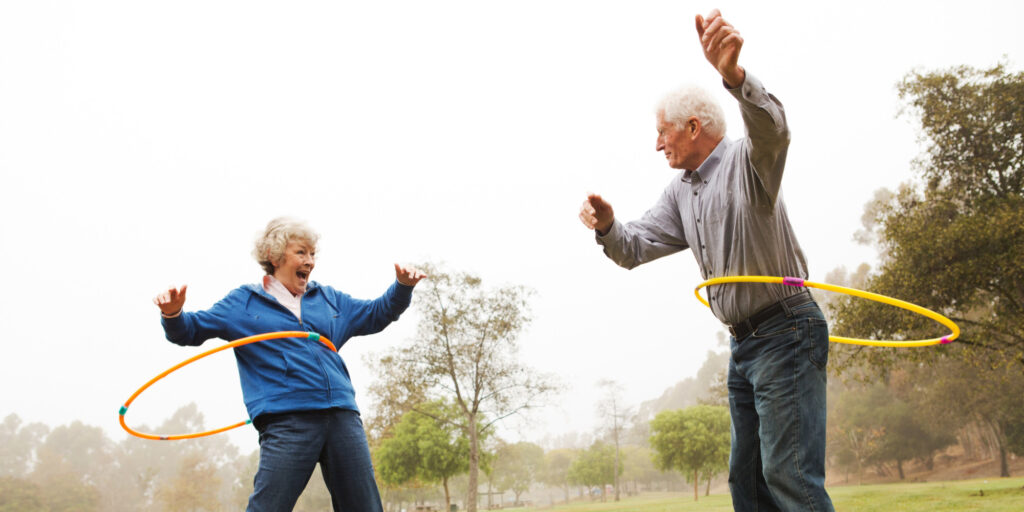Introduction
Aging is a natural part of life, but maintaining health and vitality as we age requires proactive and intentional efforts. Healthy aging involves a holistic approach that encompasses physical, mental, and emotional well-being. This article provides practical advice and evidence-based strategies to help you stay healthy, active, and vibrant throughout the aging process.
Physical Health

1. Regular Physical Activity
Importance of Exercise
Staying active is crucial for maintaining physical health and mobility as we age. Regular exercise helps to:
- Improve cardiovascular health
- Maintain a healthy weight
- Enhance muscle strength and flexibility
- Boost mental health and cognitive function
Types of Exercise
Incorporate various forms of exercise into your routine for balanced fitness:
- Aerobic Exercise: Activities like walking, swimming, and cycling improve cardiovascular health.
- Strength Training: Lifting weights or using resistance bands helps maintain muscle mass and bone density.
- Flexibility and Balance: Yoga and tai chi enhance flexibility, balance, and coordination, reducing the risk of falls.
2. Balanced Nutrition
Eating a Nutrient-Dense Diet
A balanced diet rich in essential nutrients supports overall health and can prevent age-related diseases. Key dietary components include:
- Fruits and Vegetables: High in vitamins, minerals, and antioxidants, they help combat inflammation and oxidative stress.
- Whole Grains: Provide sustained energy and fiber for digestive health.
- Lean Proteins: Essential for muscle maintenance and repair. Include sources like fish, poultry, beans, and legumes.
- Healthy Fats: Found in avocados, nuts, seeds, and olive oil, healthy fats support brain health and reduce inflammation.
Hydration
Staying hydrated is vital for all bodily functions. Aim to drink at least 8 cups of water a day, adjusting for activity level and climate.
3. Regular Health Check-Ups
Preventive Healthcare
Regular check-ups and screenings can detect potential health issues early, making them easier to manage. Important screenings include:
- Blood Pressure and Cholesterol: Monitoring cardiovascular health.
- Bone Density: Checking for osteoporosis risk.
- Cancer Screenings: Regular mammograms, colonoscopies, and prostate exams based on age and risk factors.
- Eye and Dental Exams: Maintaining vision and oral health.
Vaccinations
Stay up-to-date with vaccinations, including flu shots, pneumonia vaccines, and shingles vaccines, to prevent infections.
Mental Health

1. Cognitive Engagement
Mental Stimulation
Keeping your brain active is crucial for cognitive health. Engage in activities that challenge your mind, such as:
- Puzzles and Games: Crosswords, Sudoku, and memory games.
- Learning New Skills: Taking up a new hobby, language, or musical instrument.
- Reading and Writing: Regularly reading books, articles, and writing can stimulate cognitive function.
2. Stress Management
Relaxation Techniques
Chronic stress can negatively impact mental and physical health. Implement relaxation techniques to manage stress effectively:
- Meditation and Mindfulness: Practicing mindfulness or meditation can reduce stress and improve emotional well-being.
- Deep Breathing Exercises: Simple breathing exercises can help calm the mind and reduce anxiety.
- Progressive Muscle Relaxation: Tensing and relaxing different muscle groups can help release physical tension and promote relaxation.
3. Social Connections
Maintaining Relationships
Strong social ties are associated with better mental health and longevity. Stay connected with family and friends, and seek out new social opportunities:
- Join Clubs or Groups: Participate in community groups, clubs, or classes that interest you.
- Volunteer: Volunteering can provide a sense of purpose and help you connect with others.
- Technology: Use technology to stay in touch with loved ones, especially if distance is a barrier.
Emotional Well-Being
1. Positive Mindset
Practicing Gratitude
Focusing on positive aspects of life can improve emotional well-being. Keep a gratitude journal, noting things you are thankful for each day.
2. Setting Realistic Goals
Achievable Milestones
Set realistic and achievable goals for yourself. Whether it’s learning a new skill, improving fitness, or starting a new hobby, having goals can provide motivation and a sense of accomplishment.
3. Seeking Professional Help
Therapy and Counseling
If you experience persistent feelings of sadness, anxiety, or other emotional difficulties, consider seeking help from a mental health professional. Therapy or counseling can provide support and strategies for managing emotional challenges.
Healthy Habits
1. Quality Sleep
Importance of Sleep
Good sleep is essential for overall health and well-being. Aim for 7-9 hours of quality sleep each night. Establish a regular sleep routine and create a restful sleep environment.
2. Avoiding Harmful Substances
Moderation and Avoidance
Limit the consumption of alcohol and avoid smoking and recreational drugs. These substances can have detrimental effects on health, particularly as we age.
3. Safe Practices
Preventing Injuries
Taking precautions to prevent injuries can maintain mobility and independence. This includes:
- Home Safety: Ensuring your home is free of hazards that could cause falls, such as loose rugs or poor lighting.
- Using Assistive Devices: If needed, use canes, walkers, or other assistive devices to maintain mobility and safety.
FAQs
What are the key components of a balanced diet for aging adults?
A balanced diet for aging adults includes a variety of fruits and vegetables, whole grains, lean proteins, and healthy fats. It’s important to stay hydrated and limit the intake of processed foods, sugars, and unhealthy fats.
How can exercise benefit aging adults?
Exercise benefits aging adults by improving cardiovascular health, maintaining muscle and bone strength, enhancing flexibility and balance, and boosting mental health. Regular physical activity can also help manage weight and reduce the risk of chronic diseases.
What are some ways to stay mentally active as we age?
Staying mentally active can involve engaging in puzzles and games, learning new skills or hobbies, reading, writing, and maintaining social connections. Activities that challenge the brain can help preserve cognitive function.
How important is sleep for healthy aging?
Sleep is crucial for healthy aging as it supports physical and mental health, cognitive function, and emotional well-being. Establishing a regular sleep routine and ensuring a comfortable sleep environment can help improve sleep quality.
What role do social connections play in healthy aging?
Social connections are vital for emotional and mental health. Maintaining relationships with family and friends, participating in community activities, and volunteering can provide a sense of purpose and reduce feelings of loneliness.
What are some effective stress management techniques for older adults?
Effective stress management techniques include mindfulness and meditation, deep breathing exercises, progressive muscle relaxation, engaging in enjoyable activities, and seeking social support. Professional help from a therapist or counselor can also be beneficial.
Conclusion
Healthy aging is about adopting a proactive and holistic approach to maintaining physical, mental, and emotional well-being. By incorporating regular physical activity, balanced nutrition, cognitive engagement, stress management techniques, and strong social connections, you can enjoy a vibrant and fulfilling life as you age. Remember, it’s never too late to start making positive changes that support healthy aging.



